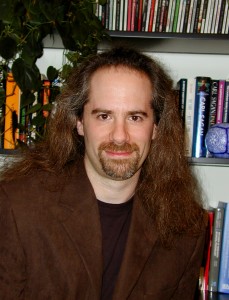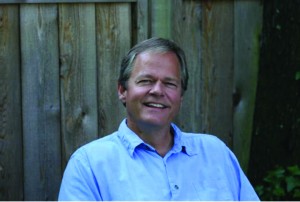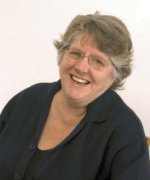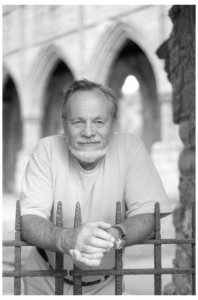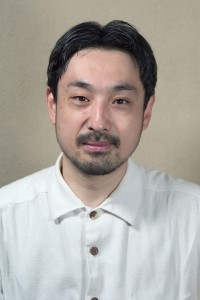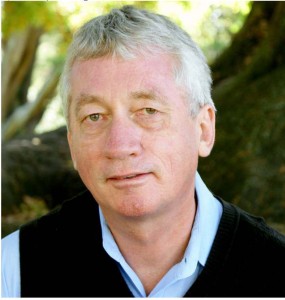2011-12 Series
|
October 13 2011
Dr. Brad J. Sagarin, Northern Illinois University “Evolutionary Psychology: Exploring Darwin’s Psychological Legacy” 7:30pm, 127 Biology. Dr. Brad Sagarin has been researching jealous responses in men in women from an evolutionary perspective for the last 15 years. According to the research, there are significant differences in how men and women experience jealousy in relationships. Men seem to be more threatened by a sexual advance on their relationship, whereas women are more threatened by a potential emotional advance on their relationship. Therefore, the research being done by Dr. Sagarin and his colleagues – the theory of evolved sex differences in jealousy – attempts to explain why sexual and emotional infidelity elicit different levels of jealousy in men and women. “My lecture will offer a guided tour through the controversy, showing how the theory’s proponents have repelled some (but not all) of the criticisms aimed at it,” Dr. Sagarin said. “In the end, I’ll show how the greatest threats to the theory lie not in attempts to refute the empirical evidence but in efforts to overturn the fundamental evolutionary logic on which the theory is based.” Dr. Sagarin studied social influence with Robert Cialdini and quantitative psychology with Stephen West at Arizona State University, where he earned his doctorate. Some of his research interests include attitude change, resistance to persuasion, deception, jealousy, and infidelity, evolutionary psychology, human sexuality, and statistical approaches to missing data and non-compliance. Dr. Sagarin’s presentation is the first lecture of the 2011-2012 series (originally scheduled as part of 2010-11 series on October 13, it was cancelled because of the April 27 tornado devastation and rescheduled). |
|
December 8 2011
Dr. Paul Ewald, University of Louisville “Evolutionary insights into the causes, treatment, and prevention of cancer.” 7:30pm, 127 Biology. Watch this lecture on iTunesU Paul W. Ewald is an evolutionary biologist, specializing in the evolution of infectious disease. He received his B.Sc. in 1975 from the University of California, Irvine, in Biological Sciences and his Ph.D. in 1980 from the University of Washington, in Zoology, with specialization in Ecology and Evolution. He is currently director of the program in Evolutionary Medicine at the Biology Department of the University of Louisville. Paul Ewald has a problem with modern medicine: It ignores the fact that many diseases of unknown origin can be linked to slow-growing infections caused by viruses, bacteria and other microorganisms. Dr. Ewald, whose theory stems from both a formal education in biological sciences, ecology, and evolution, and a personal bout with diarrhea in the 1970s, aims to change this thinking. To that end, he has written popular news articles, academic papers, and two books (Evolution of Infectious Disease and Plague Time) that explain and expand his idea. Ewald is regarded as the leading expert in the emerging field of evolutionary medicine. He directs the evolutionary medicine program in the Biology department at the University of Louisville, Kentucky, and lectures worldwide. Among other honors, Ewald was the first recipient of the Smithsonian Institution’s George E. Burch Fellowship in Theoretic Medicine and Affiliated Sciences, which was established to foster pioneering work in health sciences. |
January 26 2012
“No Dinosaurs in Heaven” documentary screening with National Center for Science Education director Dr. Eugenie Scott & filmmaker Greta Schiller.
7:30 pm, 127 Biology.
“No Dinosaurs in Heaven” documentary screening with National Center for Science Education director Dr. Eugenie Scott & filmmaker Greta Schiller.
7:30 pm, 127 Biology.
|
Dr. Eugenie C. Scott is Executive Director of the National Center for Science Education,Inc. (http://ncse.com/), a not for profit membership organization of scientists, teachers, and others that works to improve the teaching of evolution, and of science as a way of knowing. It opposes the teaching of “scientific” creationism and other religiously-based views in science classes. A former college professor, Dr. Scott is an internationally-known expert on the creationism and evolution controversy, and is called upon by the press and other media to explain science and evolution to the general public. The author of Evolution vs Creationism: An Introduction and co-editor with Glenn Branch of Not in Our Classrooms: Why Intelligent Design is Wrong for our Schools, she is the recipient of numerous awards from scientists and educators, and has been awarded eight honorary degrees.
|
Greta Schiller is an internationally acclaimed documentary film director as well as, morerecently, a science educator. Her career was launched in 1984 with the PBS broadcast of Before Stonewall winning her two Emmy Awards. The BBC calls it “an extraordinary piece of filmmaking.” All Movie Guide wrote of her, “Director Greta Schiller has traveled the world making extensively researched and highly informative films”. The Atlantic Journal and Constitution wrote that Schiller’s work “makes you glad documentaries were invented.” Ann Marie Cunningham of NPR’s Talking Science wrote: Schiller’s last line in No Dinosaurs (http://www.nodinos.com/) sticks in your head: “In order to survive as a society based on reason, we have to win this culture war” between creationism and science. Schiller was the first recipient of the Fulbright Arts Fellowship. She has taught informal science-by-inquiry classes for the Central Park Conservancy, The After-School Corporation (TASC) and the Audubon Society, and has done professional development for science teacher training programs.
|
|
February 16 2012
Dr. Brian Fagan, University of California, Santa Barbara “Elixir: Water and Humans over 10,000 years” 7:30 pm, 127 Biology. Dr. Brian Fagan specializes in communicating archaeology to general audiences through lecturing, writing, and other media. He is regarded as one of the world’s leading archaeological and historical writers and is widely respected popular lecturer about the past. His many books include three volumes for the National Geographic Society, including the bestsellingAdventure of Archaeology. Other works include The Rape of the Nile, a classic history of archaeologists and tourists along the Nile, and four books on ancient climate change and human societies, Floods, Famines, and Emperors (on El Niños), The Little Ice Age, and The Long Summer, an account of warming and humanity since the Great Ice Age. His most recent climatic work describes the Medieval Warm Period: The Great Warming: Climate Change and the Rise and Fall of Civilizations. His other books include Chaco Canyon: Archaeologists Explore the Lives of an Ancient Society and Fish on Friday: Feasting, Fasting, and the Discovery of the New World and Cro-Magnon: How the Ice Age gave birth to the First Modern Humans. His recently published Elixir: A History of Water and Humankind extends his climatic research to the most vital of all resources for humanity. |
|
March 29 2012
Dr. Ryosuke Motani, University of California, Davis “Emergence of Marine Mammals and Reptiles during past Global Warming and Sea Level Rise” 7:30 pm, 127 Biology. Dr. Ryosuke Motani is a vertebrate paleobiologist at the University of California, Davis. He is interested in the evolution reptiles and their environments in the Age of Dinosaurs. He is probably best known for his studies of ichthyosaurs–a group of marine reptiles that evolved fish-shaped body outline. For example, he discovered that some ichthyosaurs had the largest eyes of all vertebrate animals, reaching 10 inches across, and these eyes were sensitive in the dark. His recent studies cover a broad array of topics including nocturnality in dinosaurs, evolution of shell-eating marine reptiles, and influence of temperature on evolution of marine reptiles. He is a father of three children. |
|
April 12 2012
Dr. Frans de Waal, Emory University “Morality Before Religion: Empathy, Fairness and Prosocial Primates” 7:30 pm, 127 Biology. Homo homini lupus – “man is wolf to man” – is an old Roman proverb popularized by Thomas Hobbes. Even though it permeates large parts of law, economics, and political science, the proverb fails to do justice to our species’ thoroughly social nature as well as to canids, which are among the most gregarious and cooperative animals. For the past quarter century, this cynical view has also been promoted by an influential school of biology, but Charles Darwin himself saw things differently. He believed in continuity between animal social instincts and human morality. Modern psychology and neuroscience support Darwin’s view about the moral emotions. In this lecture, the acclaimed author of The Age of Empathy (2009) shows how empathy comes naturally to a great variety of animals, including humans. In his work with monkeys and apes, de Waal has found many cases of one individual coming to another’s rescue in a fight, putting an arm around a previous victim of attack, or other emotional responses to the distress of others. By studying social behaviors in animals, such as bonding, the herd instinct, the forming of trusting alliances, expressions of consolation, and conflict resolution, de Waal demonstrates that animals and humans are preprogrammed to reach out, questioning the assumption that humans are inherently selfish. He argues that understanding empathy’s survival value in evolution can help to build a more just society based on a more accurate view of human nature. Prof. Frans B. M. de Waal is a Dutch/American behavioral biologist known for his work on the social intelligence of primates. His first book, Chimpanzee Politics (1982) compared the schmoozing and scheming of chimpanzees involved in power struggles with that of human politicians. Ever since, de Waal has drawn parallels between primate and human behavior, from peacemaking and morality to culture. His latest book is The Age of Empathy (2009, Harmony Books). De Waal is C. H. Candler Professor in the Psychology Department of Emory University and Director of the Living Links Center at the Yerkes National Primate Research Center, in Atlanta, Georgia. He is a member of the (US) National Academy of Sciences, the American Academy of Arts and Sciences, and the Royal Dutch Academy of Sciences. In 2007, he was selected by Time as one of The Worlds’ 100 Most Influential People Today, and in 2011 by Discover as 47 [all time] Great Minds of Science. |

